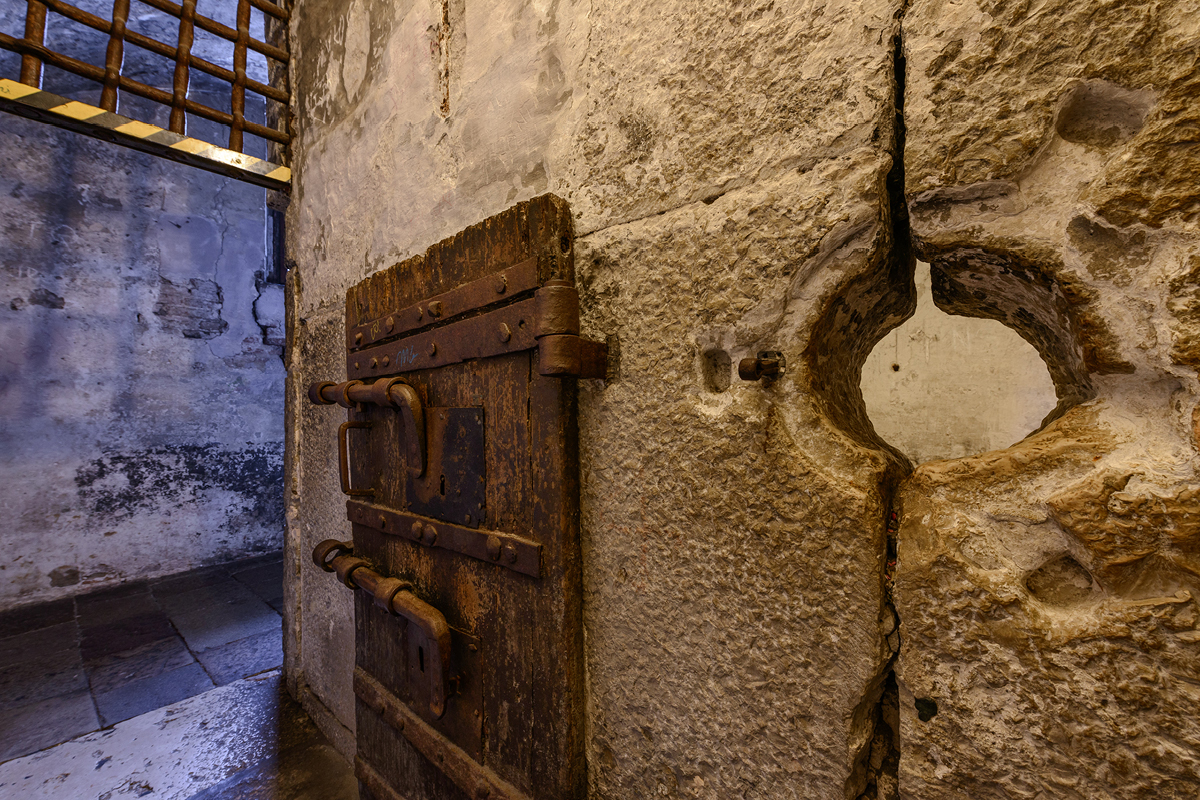Giacomo Casanova was enjoying himself, travelling around Europe, meeting the most interesting people of the time, accepting invitations from the rich and famous, gambling, drinking, seducing girls, avoiding responsibilites and in general having a great time. In 1755, however, he was back in Venice. And, on a night like many others he was out and about town drinking and entertaining himself and those around him in the way he knew best.
The Venetian state, famously intolerant of any public misdemenaour, could only stand so much liberty from one man, even if it was Casanova, and so the secret police was sent out to arrest him on charges of debauchery and blasphemy. He was quickly sentenced to jail, and found himself confined in the Piombi, the
Venetian prisons. However, even prison proved an adventure for Casanova, and life on the inside was not too bad, as he’d been allowed to move some of his own furniture into his cell and was regularly given proper warm meals, which was not customary of course. However cushy prison could be for him, enough was enough. He quickly befriended a fellow prisoner, an abbot called Baldi, also a keen womaniser, and together they began digging a hole in the roof of the cell, through which they climbed out to make their escape. This took them to the Chancellery of the Doge’s Palace, and as a guard stopped them and asked what they were up to, they pretended to be official visitors who had got lost during a tour of the building; they politely asked for directions to the exit, showed themselves out, got on the nearest gondola and frantically rowed to Mestre. This, naturally, was not the usual treatment or the usual outcome for prisoners in the Piombi, as these were considered maximum security and conditions were seriously grim. In 1787 Casanova even decided to publish a book, “My Escape from the Prisons of Venice”. Many though believe that Casanova was allowed to escape, given the ties he’d cultivated with rich and powerful people around Europe. And what a crime it would have been to shut him up in a cell, and not to have him lead the life he led, do the things he did and write it all down for our own delight and entertainment.







